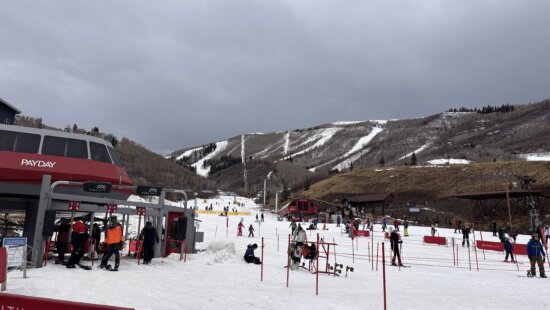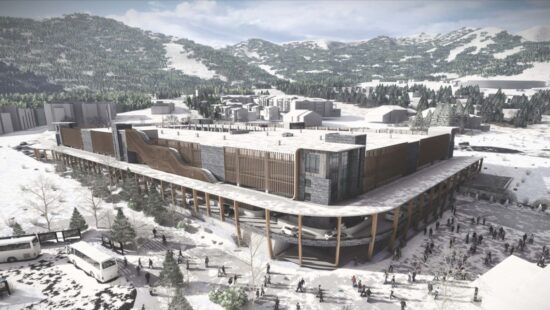Snow
Vail reports decline in skier visits amid tumultuous season marked by Park City strike and negative press

Park City Mountain base area at 11:00 a.m. on Sunday Dec. 29. Photo: Park City Mountain
PARK CITY, Utah — Vail Resorts on Thursday reported a 3.1% drop in skier visits across its 37 North American mountain resorts through April 20, highlighting a turbulent winter that included a 13-day ski patrol strike at Park City Mountain and a barrage of national criticism over the company’s labor practices and guest experience.
Despite fewer skiers, the company said total lift ticket revenue rose 3.4%, driven largely by pre-committed season pass sales. Ski school and dining revenues also increased slightly, up 2.7% and 2.2% respectively, while retail and rental sales fell by 4.0%.
In a statement, Vail CEO Kirsten Lynch framed the season as a demonstration of the “resiliency” of the company’s business model, noting that the strength of its pass holder program and cost discipline helped weather the decline in visitation, particularly from day ticket buyers.
But for many, the numbers are a reflection of deeper dissatisfaction.
Park City Mountain, one of Vail’s flagship resorts, was the epicenter of controversy earlier this year when ski patrollers walked off the job in January to demand better pay and working conditions. The 13-day strike—the first of its kind in decades—drew national attention and sparked widespread criticism of Vail’s labor policies. The situation ultimately ended in a settlement that included modest pay raises, but the public relations damage lingered.
The New York Times, Outside Magazine, Business Insider and several ski industry blogs ran scathing stories in the aftermath, characterizing the dispute as emblematic of broader concerns about corporate consolidation in the ski industry and deteriorating guest experiences at Vail-owned resorts.
Lynch acknowledged “continued industry demand normalization” as a factor in the visitation decline, but she did not directly address the impact of the Park City strike or public backlash in Thursday’s earnings update.
Looking ahead, the company expects fiscal 2025 earnings to fall in the lower half of its previously issued guidance due to weaker-than-expected spring ticket sales. Early sales for the 2025–2026 season pass are underway, with mixed results: pass units were down slightly, though revenue was up and renewal rates among longtime passholders were strong.
Still, the company faces questions about its ability to retain customer loyalty amid labor disputes, economic uncertainty, and growing public scrutiny.



















